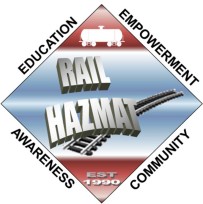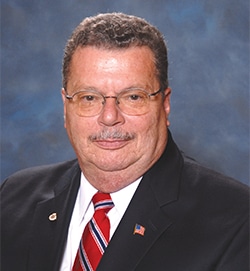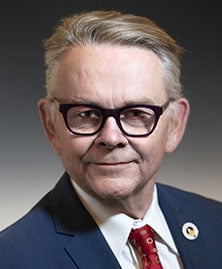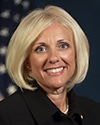MEMORANDUM
Officers and Staff
SMART Transportation Division
Dear Brothers and Sisters:
As the COVID-19 continues to impact our country and its day-to-day operations, I have received a number of inquiries concerning travel and day-to-day business for union officers and staff.
I will simply state that at this time, it is my personal decision to continue as normal with our mission to serve the membership. As a leader I would never ask our members who are working on buses, trains, and commuter operations every day to do something I would not do. I know they are in harm’s way every day they go to work, with or without COVID-19, and as long as they are there, I too will be traveling by all means necessary to move us forward. This past week, I flew to the AFL-CIO Transportation Trades Department executive council meetings and the UTUIA Field Supervisor annual training class. Next week, I look forward to traveling to Los Angeles to meet with many bus drivers and SMART-TD officers. Until a government agency tells me I can no longer travel, my schedule will not be altered.
In doing so, I will also be monitoring this situation and keeping current with the U.S. Centers for Disease Control and Prevention (CDC) guidelines, while staying particularly mindful of the links provided below my signature. If you are not already, I would encourage you to do the same.
With that being said, should anyone have issues with having to travel while serving in a union capacity due to personal health reasons or fear of contamination of a family member, then I understand. That is your personal decision to make, in conjunction with your doctor or family members.
We will do our best to keep everyone apprised of any changes and we will take every precaution necessary to keep everyone safe. Many letters went out last week and early this week from my office requesting advice for the safety of our members, and also demanding relief from the draconian attendance policies currently in place. So far, the FRA has been the only one to respond. It is sad, yet not surprising, to see the FRA has responded in such a pathetic manner. It is also disconcerting how the FAA stepped up and issued advisories to airports, pilots, and flight attendants; yet the FRA relies on “having no authority in this area” (via Frank Wilner of Railway Age) as their excuse for inaction. We will continue to push all agencies to do everything possible to protect our membership when on duty.
Fraternally yours,
Jeremy Ferguson
President — Transportation Division
COVID-19 and Travel in the United States: https://www.cdc.gov/coronavirus/2019-ncov/travelers/travel-in-the-us.html
CDC Steps to Prevent Illness: https://www.cdc.gov/coronavirus/2019-ncov/protect/prevent.html
CDC Guidelines on Identifying Symptoms: https://www.cdc.gov/coronavirus/2019-ncov/about/symptoms.html




 The Rail Workers Hazardous Materials Training Program has opened registration for a hazmat/chemical emergency response training program in April for rail workers in Arizona, western New Mexico, southeastern California and the Navajo Nation.
The Rail Workers Hazardous Materials Training Program has opened registration for a hazmat/chemical emergency response training program in April for rail workers in Arizona, western New Mexico, southeastern California and the Navajo Nation.

